Frozen or fresh quail: which to choose and why
Choosing between frozen and fresh quail is not just a matter of preference, but can significantly affect the quality and end result of your dishes. If you are an avid cook who likes to experiment with quality ingredients, knowing the differences between these two options can help you make the best choice. Thoroughly knowing the advantages and disadvantages of fresh and frozen quail will help you better manage their storage, their use, and understand how each option can adapt to different recipes and situations.
Differences between frozen and fresh quail
Fresh and frozen quail have substantial differences in flavor, texture, nutrition, and convenience. Understanding these differences will allow you to get the best results in the kitchen, depending on the recipe you want to prepare and your personal needs.
Taste and texture
One of the main differences between fresh and frozen quail is flavor. Fresh quail tend to retain the natural flavors of the meat better , especially if they are cooked shortly after purchase. Fresh meat is generally juicier and has a soft texture that can be appreciated in dishes such as roasted or grilled quail, where the quality of the meat is crucial to the end result. Frozen quail, on the other hand, may slightly lose their original flavor during the freezing and subsequent thawing process, especially if the process is not done properly.
However, thanks to modern quick-freezing methods, the difference in flavor between fresh and frozen quail has become less pronounced than in the past. Immediate freezing immediately after slaughtering allows most of the meat’s Organoleptic characteristics to remain intact, retaining its natural flavor and relatively soft texture. In many preparations, especially those that require Slow cooking, such as Stewing or stuffed quail, the difference between fresh and frozen meat is almost imperceptible.
Nutritionally, frozen quail retains most of the nutrients found in fresh meat. Modern freezing allows vitamins, minerals and proteins to be preserved without significantly altering their nutritional value. Sensitive vitamins such as B vitamins may be slightly reduced during the freezing process, but the loss is generally minimal. Fresh quail, on the other hand, offer a small advantage in terms of vitamin and mineral content, but this difference is only relevant if consumed immediately after slaughter.
An important advantage of frozen quail is their long shelf life. Fresh quail should be consumed within a few days of purchase, while frozen quail can be stored in the freezer for several months without losing their properties. This makes frozen quail a more practical choice for those who wish to have an always-available supply of quality meat.
Thawing and baking
Another aspect to consider when choosing between fresh and frozen quail is the thawing process. Frozen quail must be thawed properly to ensure that they retain their quality. The best way to thaw them is to let them rest in the refrigerator for about 24 hours. This slow thawing allows the meat to retain its texture and prevents the growth of harmful bacteria. Thawing quail at room temperature or in the microwave could damage the meat, altering its texture and compromising the final result of the dish.
Fresh quail: advantages and when to choose them 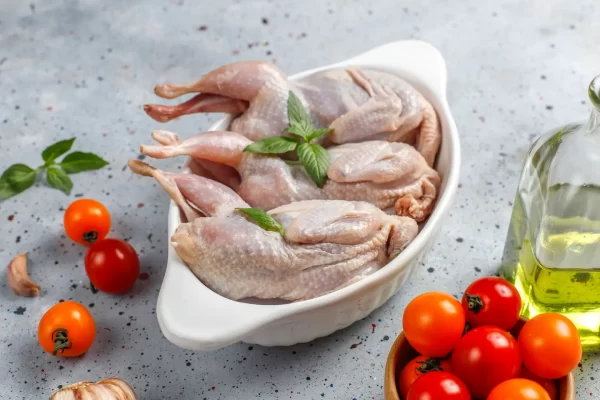
Opting for fresh quail is an excellent choice for those seeking the highest quality and wishing to make the most of the natural flavor of the meat. This option is ideal for those who have the opportunity to cook them immediately after purchase. But what are the main advantages of fresh quail and the contexts in which they are particularly suitable?
Intense flavor and natural quality
Fresh quail have a more pronounced flavor than frozen quail. Because of their tender and juicy meat, these quail are particularly suitable for recipes that enhance purity of flavor, such as roasted, grilled, or pan-fried quail. Fresh meat retains all its natural moisture, which results in a juicier texture and greater tenderness than frozen quail. This is especially important in simple dishes where the quality of the meat is the focus, such as in baked quail with herbs or the classic roast.
Freshness and elaborate preparations
Quail’s freshness makes them ideal for both classic recipes and more elaborate preparations. In dishes where the cooking time is short, such as Grilling or Frying pan cooking quail, the freshness of the meat is essential to prevent it from drying out and to maintain tenderness. In addition, fresh quail is an excellent choice for elegant dinners or special events where the quality of the meat must be impeccable. For occasions such as weddings, parties or formal dinners, using fresh quail will ensure an excellent result.
Purchase and storage of fresh quail
If you have access to fresh quail, it is important to consume them quickly to make the most of their quality. After purchase, fresh quail should be stored in the refrigerator at a temperature between 0°C and +4°C and consumed within 2-3 days. If you do not plan to cook them right away, you may choose to freeze them to extend their shelf life, but it is advisable to do so as soon as possible to preserve their flavor and texture.
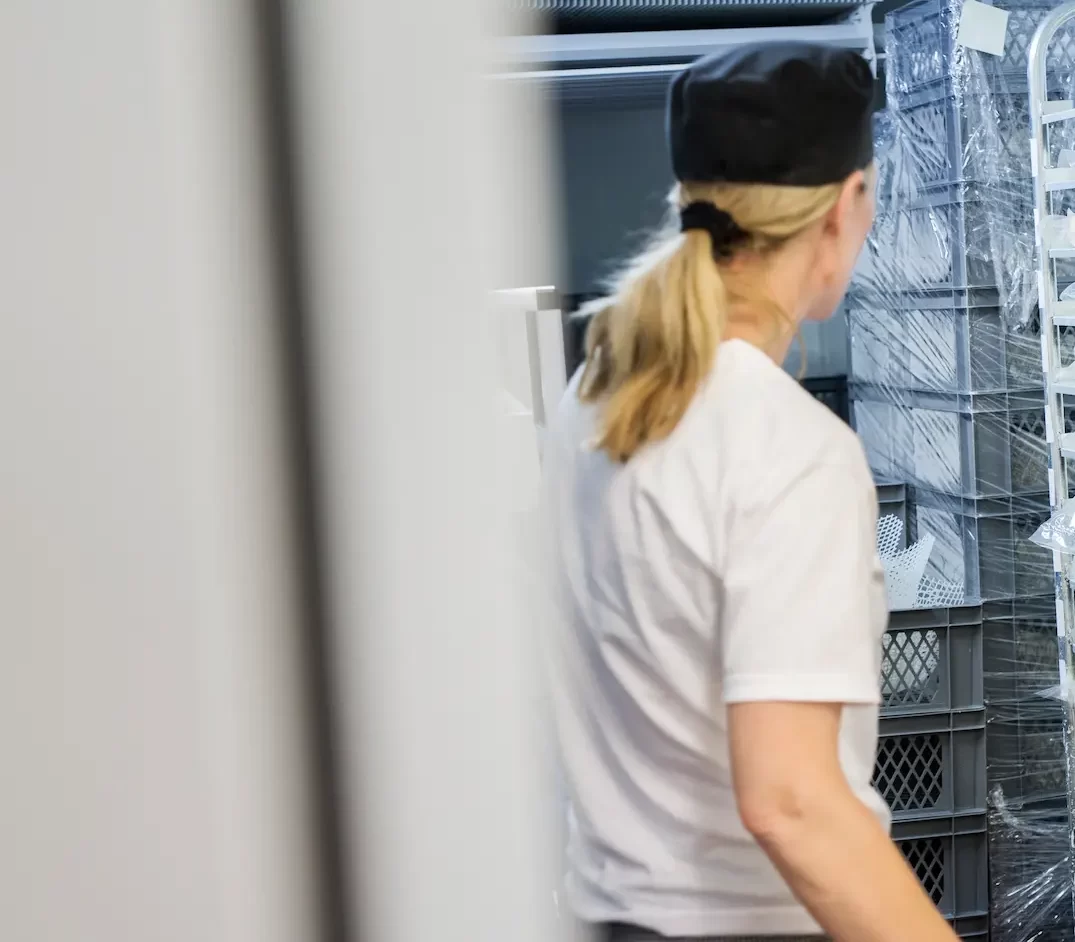 Frozen quail: advantages and when to choose them
Frozen quail: advantages and when to choose them
Frozen quail is an extremely convenient option for those seeking a practical alternative without sacrificing quality. The ability to store this type of meat for a long time makes frozen quail ideal for those who want to always have a supply on hand. Although fresh quail often offer a slightly more pronounced flavor, modern freezing methods, as mentioned above, allow much of the meat’s organoleptic properties to remain intact. Frozen quail meat, however, is suitable in some specific situations.
Availability and practicality
One of the greatest advantages of frozen quail is their year-round availability. Unlike fresh quail, which can be difficult to find at certain times or in certain geographical areas, frozen quail are readily available anywhere and in any season. This is particularly beneficial for those who live in areas where access to fresh meat may be limited or irregular, or for those who prefer to plan their meals without having to worry about the availability of fresh produce.
In addition, the convenience of frozen quail allows you to always have a ready-to-use supply. Freezing stops spoilage processes and allows meat to be preserved in optimal condition for a long period, making it perfect for use when you do not have the time or opportunity to buy fresh ingredients. Simply thawing quail in the correct way will result in a product that is virtually identical to the fresh product. This makes frozen quail ideal for large families or those who like to plan meals in advance without having to worry about last-minute shopping.
Shelf life
Frozen quail are distinguished by their long shelf life. If kept at a constant temperature of -18°C or lower, they can be stored in the freezer for up to six months without any significant loss of quality. This feature makes frozen quail an advantageous option for those who wish to stock up on meat without having to worry about rapid spoilage, as is often the case with fresh quail.
The large storage time window allows you to take advantage of promotions and buy in large quantities, saving time and money in the long run. In addition, knowing that you have frozen quail on hand offers considerable flexibility: you can decide at the last minute what to cook without being tied to the freshness of the meat. Because of this advantage, frozen quail is also a strategic option for those who wish to plan meals for special events, dinners or parties in advance, eliminating the stress associated with sourcing fresh ingredients.
Perfect for complex recipes 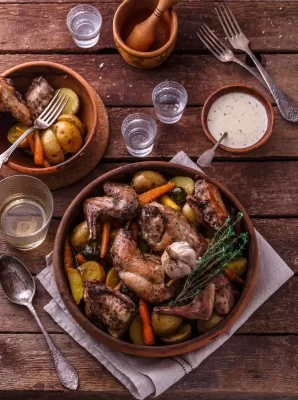
Another important advantage of frozen quail is their versatility in cooking, especially for preparations that require elaborate Slow cooking. In recipes such as Stuffed quail, stewed quail, or quail cooked with rich sauces, the differences between fresh and frozen quail become virtually unnoticeable. During extended cooking, in fact, the meat has time to absorb the flavors of the other ingredients, making any initial differences in texture or flavor between fresh and frozen meat less relevant.
In fact, frozen quail may even work better in some complex recipes, as freezing helps break down muscle fibers, making the meat more tender during cooking. This makes them ideal for dishes with sauces or broths that require a long cooking time for the flavors to blend well. The ability of frozen quail to better absorb seasonings and liquids makes them perfect for savory recipes such as quail in red wine or braised quail, where the flavor of the cooking liquids plays a central role in the success of the dish.
In addition, frozen quail is an excellent solution for those cooking for large groups or events, where the need to prepare large quantities of meat can make it difficult to supply fresh quail in sufficient numbers. Because of their shelf life and convenience, frozen quail make it easy for you to host dinners or events without compromising the quality or complexity of the recipes you wish to prepare.
Which ones to choose, ultimately?
Quail frozen, therefore, offer a range of advantages in terms of convenience, storage and versatility, making them an ideal choice for those seeking a convenient solution without sacrificing quality. Although the flavor of fresh quail may be slightly more intense, frozen quail prove to be an indispensable resource in the kitchen, especially for complex preparations and Slow cooking, where the meat absorbs flavors and becomes tender and juicy.
Food Conservation and Food Safety
Proper storage of quail, whether fresh or frozen, is essential to ensure that the meat remains safe to consume and retains its organoleptic qualities intact. Errors in storage can not only affect flavor but also expose you to health risks. Therefore, it is crucial to follow the correct guidelines for both fresh and frozen quail to avoid waste and to ensure a safe and tasty meal.
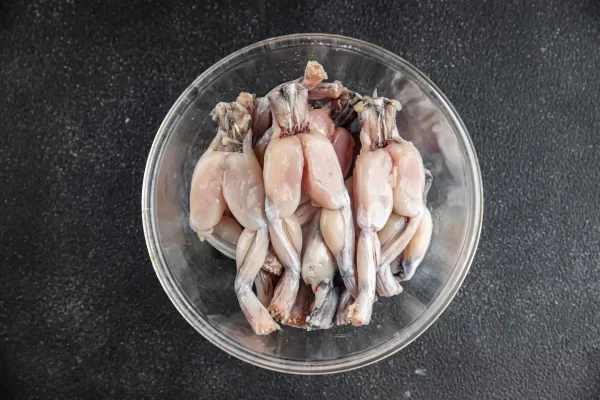
Fresh quail storage
Fresh quail are particularly sensitive to temperature. Once purchased, they should be stored in the refrigerator at a constant temperature between 0°C and +4°C. It is important to keep this temperature constant to avoid the proliferation of pathogenic bacteria , such as Salmonella, which can multiply rapidly if meat is left at higher temperatures. Fresh quail should be consumed within 2-3 days after purchase to ensure maximum freshness and safety.
If you do not plan to cook quail within this period, it is advisable to freeze them. Before doing so, it is important to prepare the meat for freezing by wrapping it tightly in food wrap or using a freezer bag. This prevents the meat from coming into contact with air, preventing freezer burn, which can alter flavor and texture. Once frozen, quail can be stored in the freezer for up to 6 months without significant loss of quality.
Storage of frozen quail
Frozen quail are often already treated to ensure their long-term preservation, but it is still essential that they be stored at a constant temperature of -18°C or lower, as we mentioned. This temperature ensures that spoilage processes are arrested, preventing the development of bacteria and maintaining the nutritional and organoleptic properties of the meat.
The thawing process is crucial to preserving the quality of frozen meat. The best method for thawing quail is always to leave it in the refrigerator for 24 hours, allowing the meat to thaw gradually and evenly. This reduces the risk of bacterial growth and prevents the meat from losing too much liquid, thus maintaining its original texture. Caution, remember that thawing meat at room temperature or in the microwave can cause uneven thawing and increase the risk of bacterial contamination.
Another aspect to consider in Food Safety is the handling of the product once thawed. Thawed quail must be cooked immediately and cannot be refrozen, as this could compromise their quality and increase the risk of contamination. If you do not plan to cook all the thawed quail right away, you can portion them before freezing so that you thaw only the amount needed.
Ultimately, the proper storage of quail ensures not only the safety of the product, but also the preservation of flavor, texture and nutritional values, allowing you to enjoy this prized meat to the fullest on any occasion.
Which one to choose for your recipes?
The decision between fresh and frozen quail depends on several factors, including the type of recipe, convenience, and availability of the product. Both options have their specific advantages, and choosing one or the other can greatly influence the final result of the dish. Let’s examine in detail which type of quail is best suited for each situation and how to make the most of both options in the kitchen.
When to choose fresh quail 
Fresh quail are an ideal choice when you want to enhance the natural flavor of the meat and achieve a soft, juicy texture. Simple dishes such as roasted, grilled or pan-fried quail benefit greatly from the use of fresh meat, as product quality plays a crucial role in preparations where there are no complex sauces or seasonings to mask the taste. Fresh quail offer a more authentic dining experience, where the pure flavor of the meat is the undisputed star.
If you are planning a special event, such as a formal dinner or an important party, fresh quail is an excellent choice. Preparations such as Stuffed or roasted quail, served with elegant side dishes such as roasted new potatoes or seasonal vegetables, are perfect for impressing your guests. Fresh quail also lends itself particularly well to quick and intense cooking, such as grilling, where the meat retains its delicate texture without drying out.
In addition, fresh quail are often preferred by professional chefs because of their ability to better absorb marinades and seasonings during cooking. If you have access to fresh quail and the ability to cook them right away, this is undoubtedly the best option for dishes that require special attention to meat quality.
When to choose frozen quail
Frozen quail is a practical and convenient option, especially for those who wish to plan meals in advance or for those who do not have regular access to fresh quail. Because of their long shelf life, frozen quail can be purchased and stored in the freezer, ready to be used when needed. This makes them ideal for those who want to always have a supply of high-quality meat on hand without having to worry about the immediate freshness of the product.
Frozen quails are perfect for recipes that require slow cooking and complexity, such as stewing, stuffing or with rich sauces. During these prolonged cooking times, the meat has time to absorb the flavors of the ingredients and sauces, and as we have said, the difference between fresh and frozen meat becomes almost imperceptible. In addition, frozen quail are an excellent choice for dishes prepared in large quantities, such as buffets or family dinners, where convenience and flexibility in handling ingredients are essential.
Another aspect to consider is cost: frozen quail are often cheaper than fresh, making them a more affordable option for those who want to enjoy this prized meat without having to spend a fortune. In addition, the year-round availability of frozen quail allows you to enjoy this product even out of season, without having to depend on the limited supply of fresh quail in stores.
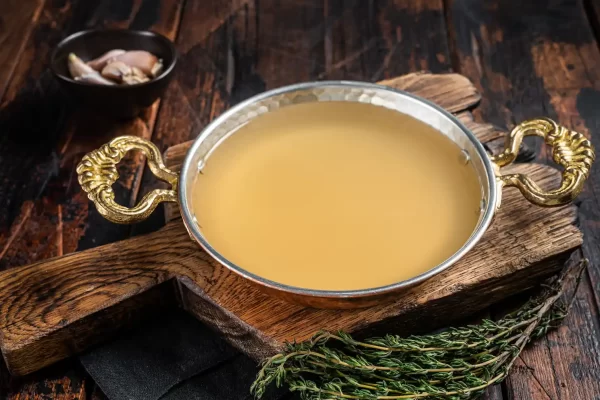 How to choose by recipe
How to choose by recipe
Your choice should also be guided by the type of dish you want to prepare. If you have in mind a recipe that requires short cooking time and where the flavor and texture of the meat are central elements, such as a grill or skillet preparation, opting for fresh quail will definitely be the best decision. Conversely, if you are preparing a dish that involves long cooking and the use of sauces or broths, such as a stew or Stuffed quail, frozen quail will offer an equally excellent result, with the added benefit of convenience.
In summary, whether you choose fresh or frozen quail, both options can provide outstanding results when used in the right context. Knowing the strengths and limitations of each choice will allow you to maximize the success of your dishes and tailor each recipe to your needs and product availability.
Considerations on fresh and frozen quail
Whatever your choice between fresh or frozen quail, what really matters is the quality of the product and the care you take in preparing it. With the right cooking techniques and respect for the unique characteristics of this prized meat, you can create exceptional dishes that maximize the delicate flavor of quail.
Whether you are planning a special dinner party or an everyday meal, be sure to always aim for excellent quality quail, such as those offered by Quaja Veneta, to ensure outstanding results in the kitchen. Your creativity and attention to detail will make all the difference, turning every occasion into an unforgettable dining experience.
